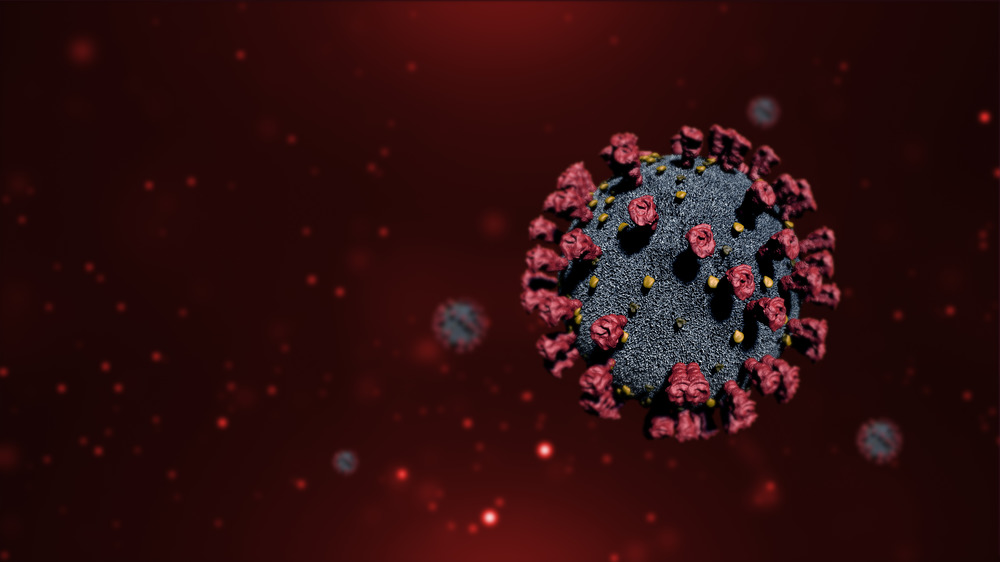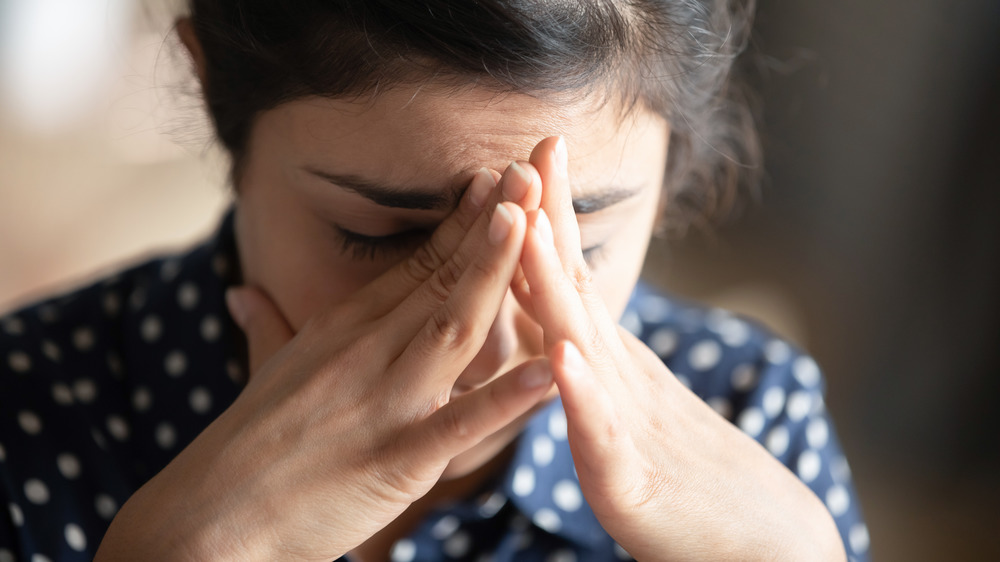What You Need To Know About This Rare COVID-19 Side Effect
As the coronavirus pandemic continues, a number of patients worldwide who thought they had recovered from COVID-19 have developed neurological, cognitive, and psychiatric side effects, including memory loss, confusion, and psychotic episodes (via The New York Times).
The U.S. Centers for Disease Control and Prevention classifies COVID-19 as a respiratory disease spread through droplets when an infected person talks, sneezes, or coughs. Symptoms include shortness of breath, coughing, fever or chills, muscle or body aches, vomiting or diarrhea, and losing the sense of taste or smell.
However, doctors are now noticing that a few people, weeks after contracting the coronavirus, have developed severe psychotic symptoms, even though they have no history of mental health problems. One study in Britain of 153 patients hospitalized with COVID-19 found that 10 had "new-onset psychosis" (via Lancet Psychiatry). Another study in Spain identified 10 such patients whose psychotic episodes began with confusion, established quickly, and were resolved with low doses of antipsychotic medication (via Psychiatry Research).
The body's immune response may cause psychosis, brain fog, and other mental health issues, experts say
Several doctors in the United States told The New York Times about patients who experienced hallucinations, delusions, and paranoia after contracting the coronavirus. Dr. Hisam Goueli, a psychiatrist at South Oaks Hospital in Amityville, N.Y., treated a 42-year-old physical therapist and mother of four children, ages 2 to 10, who reported hearing a voice that told her to kill herself and her children. At first, Goueli said, doctors at the inpatient psychiatric treatment program weren't sure whether to link the virus to the psychological symptoms. "But then, we saw a second case, a third case, and a fourth case, and we're like, 'There's something happening,'" Goueli said.
Medical experts think that the body's immune response to the virus may be causing these side effects, even in patients who didn't develop serious circulatory, heart, or lung problems. They expect only a small proportion of patients will experience such "extreme psychiatric dysfunction."
However, others who have recovered from COVID-19 are experiencing what doctors call brain fog, including confusion, dizziness, difficulty focusing, and memory loss. Dr. Igor Koralnik, chief of neuro-infectious disease at Northwestern Medicine in Chicago, Illinois, told The New York Times that he's seen a lot of COVID-19 survivors with such symptoms. "There are thousands of people who have that," he said. "The impact on the work force that's affected is going to be significant." One study in France involving 120 coronavirus patients noted that months later 27 percent had problems concentrating and 34 percent had memory loss.


